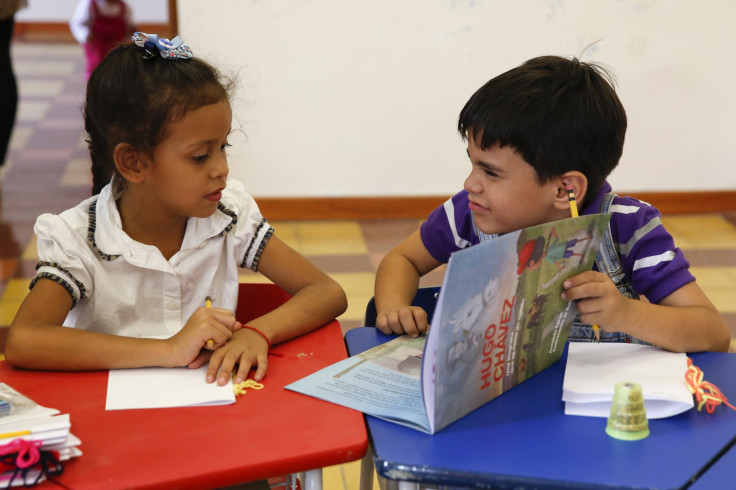Reading To Young Children Can Boost Language And Comprehension Later In Life, Evidence Confirms

A link between reading to children and brain activity had been established. Experts now have an evidence pointing to the influence of reading to kids and their brain development.
"We are excited to show, for the first time, that reading exposure during the critical stage of development prior to kindergarten seems to have a meaningful, measurable impact on how a child's brain processes stories and may help predict reading success," said study author John Hutton, MD, National Research Service Award Fellow, Division of General and Community Pediatrics, Reading and Literacy Discovery Center, Cincinnati Children's Hospital Medical Center. "Of particular importance are brain areas supporting mental imagery, helping the child 'see the story' beyond the pictures, affirming the invaluable role of imagination."
The American Academy of Pediatrics has been advocating reading to children as early as the infancy stage to stimulate optimal patterns in the brain. However, specific information regarding its benefits, specifically that of language development, were not previously feasible.
In this recent study by Hutton and his team, the researchers investigated how the brain networks of 10 health preschoolers would work after reading to them. About 37 percent of the study subjects came from low-income families. The procedure was initiated by asking the primary caregiver about measures taken in the home that can give cognitive stimulation. The areas of survey include: access to books, parent-child reading, frequency, variety of books, parent-child relationship and the specific skills that parents taught their kids.
With no visual stimuli or sedation involved, the participants were asked to listen to age-appropriate stories via headphones, whilst performing functional magnetic resonance imaging, or MRI. The fMRI measured the brain activity of the kids during the said task. The main focus of the researchers is to find if reading out kids can influence the areas of the brain involved in language development and comprehension. At the end of the experiment, it was found that there is indeed a significant activation in the areas of the brain responsible for semantic processing, or extraction of meaning through language.
As the areas of the brain that support mental imagery were notable activated, it is suggested that visualisation is essential in comprehending listened narration and readable materials. This is particularly important as the child advances in age when pictures books are changed into textbooks, which do not usually come with images to support the written words, Hutton said. The team aims to contribute to future research to improve the comprehension of children, specifically those who have difficulties, Hutton closes.
To contact the writer, email rinadoctor00@gmail.com





















